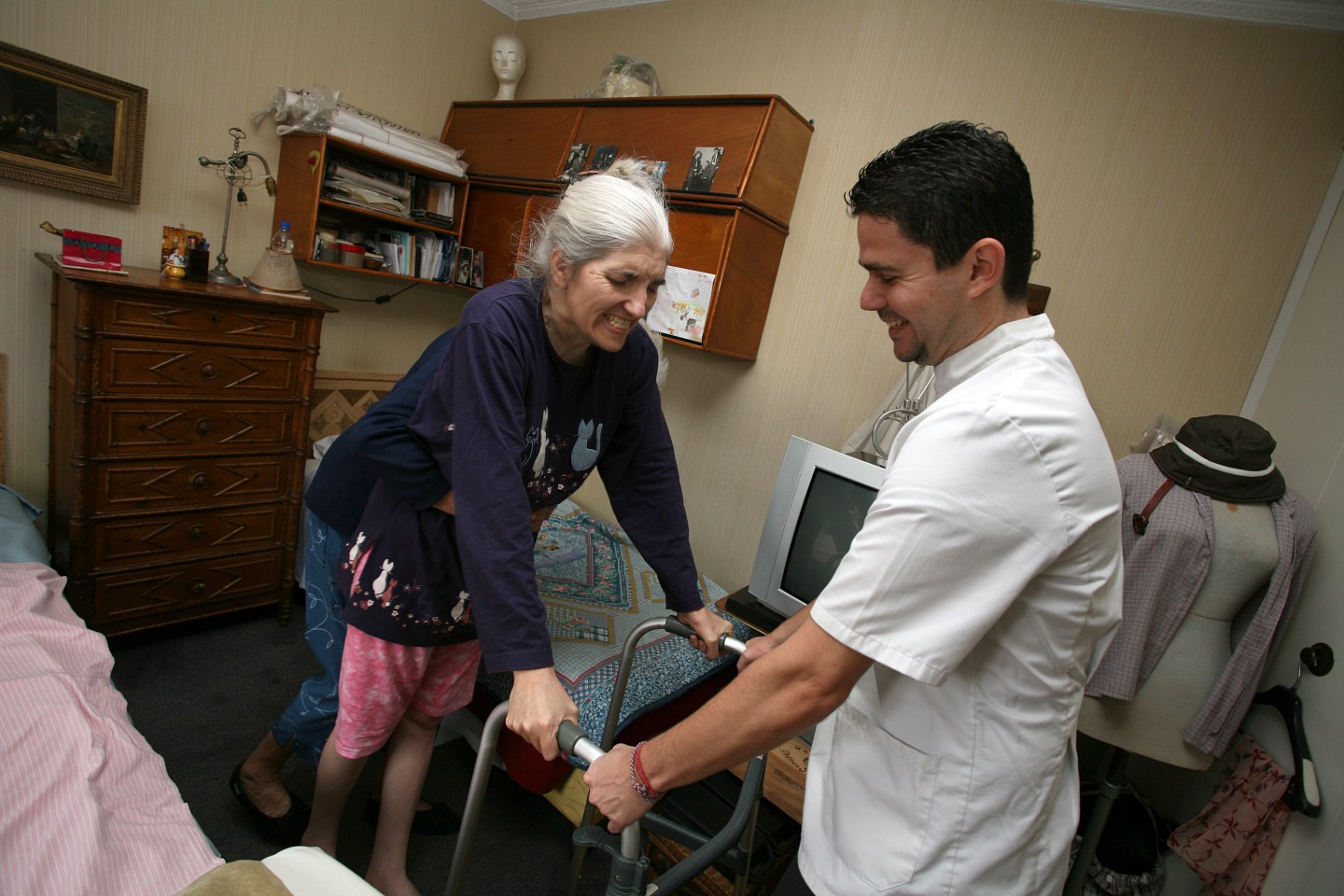Late Tuesday, the Food and Drug Administration (FDA) approved a groundbreaking multiple sclerosis treatment from Roche/Genentech—the first one ever approved to treat a severe form of MS called primary progressive multiple sclerosis (PPMS).
The drug, ocrelizumab (to be marketed under the brand name Ocrevus), is also approved to treat more common relapsing varieties of MS. But the label’s inclusion of PPMS patients could give it a leg up over rival treatments from companies like Biogen (BIIB).
Click here to subscribe to Brainstorm Health Daily, our brand new newsletter about health innovations.
Relapsing remitting multiple sclerosis patients have oscillations in their disease, including periods when symptoms (such as loss of mobility) subside. But this isn’t the case in PPMS, which involves “steadily worsening function from the onset of symptoms, often without early relapses or remissions,” according to the FDA. The Centers for Disease Control (CDC) estimates that about 15% of MS patients have this more severe form.
“Multiple sclerosis can have a profound impact on a person’s life,” said the FDA’s Dr. Billy Dunn in a statement. “This therapy not only provides another treatment option for those with relapsing MS, but for the first time provides an approved therapy for those with primary progressive MS.”
Another reason Ocrevus may have an advantage over its competitors, besides the broader treatment label? Roche/Genentech plans to charge a $65,000 annual list price for the therapy. That’s actually a pretty big discount compared with other treatments, like Biogen’s Tysabri, which runs at more than $72,000 per year before discounts and rebates.
Of course, it’s possible that Roche/Genentech can make up for that with a future price increase, which is a pretty common tactic among drug makers. In the multiple sclerosis space specifically, the price watchdog Institute for Clinical and Economic Review (ICER) recently concluded that nearly every drug on the market is too costly relative to the value they provide for patients. Only one was reasonably priced, according to ICER: French pharma giant Sanofi’s Lemtrada.











